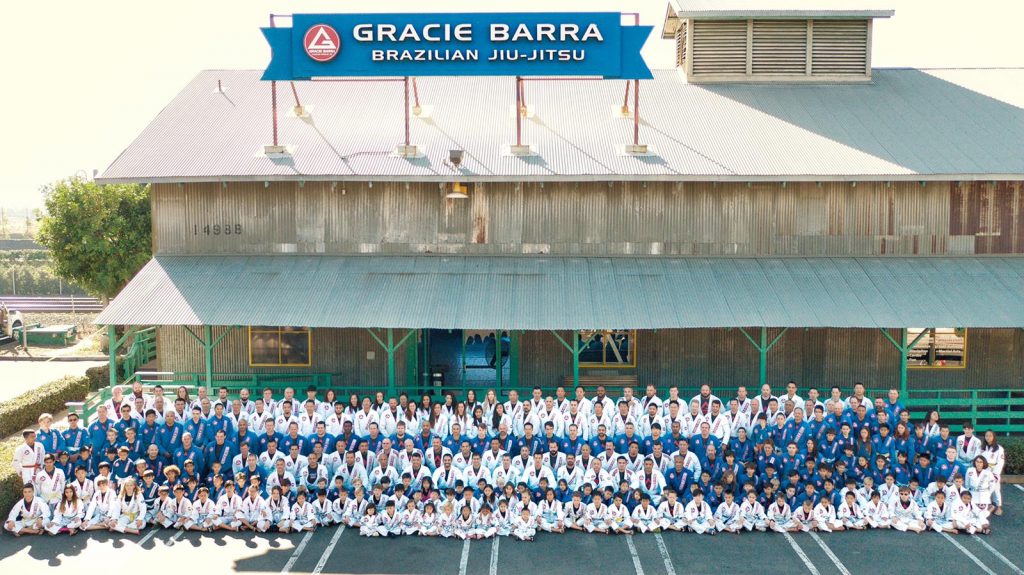GB Student Question: “What do I look for in choosing a jiu-jitsu school?”

A woman who had been training Muay Thai for several years recently relocated to a new city and was looking to start training jiu-jitsu. She asked “I looked online for Jiu-Jitsu schools and found a couple of schools. What should I be looking for when choosing a school to train at?”
ㅤ
Have you checked out the GB Online Instagram account?
https://instagram.com/graciebarraonline @graciebarraonline
ㅤ
One of the school links that she sent me was actually Ju jutsu (a different spelling) and was actually a Japanese style of ju jutsu that was quite different than the Brazilian jiu-jitsu that we know at Gracie Barra. The names can be a bit confusing. The Japanese ju jutsu at that school focused on self-defense (wrist locks and various strikes and takedowns) with some weapons training. While they may offer some solid instruction, it wasn’t the type of jiu-jitsu she was looking for.
ㅤ
The most common – and possibly the best answer to her question is to visit the school in person and observe a class. You can quickly get an idea of the atmosphere and the culture in the school. Is it very quiet during the training and traditional when it comes to customs like bowing and strictness of the class rules? Is it very informal with people very relaxed and talkative and possibly wearing multi-colored kimonos and spats? Do the people both running the classes and the students seem to like the types of people that you would want to spend 4 nights a week with?
ㅤ
Your gut feeling will perhaps be the best indicator of whether you will enjoy training at that school.
ㅤ
I offered three pieces of more objective advice.
ㅤ
1- All things being equal, choose a school that is located closer to where you live or work. Over the course of a month, that is a lot of travel time getting to and from class. If it is too difficult to get to class, you will likely want to skip training some days where you feel a little tired or when the weather is bad. A school situated close to a subway stop would be much more convenient than having to transfer between modes of transportation. In most larger cities, traffic is a concern. Especially around the time of the earliest evening class. Enduring 30+ minutes in rush hour traffic every day could be a deal-breaker.
ㅤ
2- Choose the highest level of instruction. This one is a little trickier to ascertain. Some school’s websites will tout the grandmaster as having 9th-degree black belts in 5 different martial arts. These claims are dubious at best.
ㅤ
Your best bet is to train with a black belt instructor. Yes, you can learn from a lesser-ranked instructor but there IS a difference in the experience between a purple belt and an experienced black belt. The less experienced belt might be very enthusiastic but an instructor can’t teach what they don’t know. So look for an instructor who has years of experience teaching.
ㅤ
One of the advantages of going with a known school like Gracie Barra is that you know that the instructors have had to undergo the GB ICP – the Instructors Certification Program that provides a curriculum and methodology to the class instruction. In addition, there will be standards in place for various aspects of operating a jiu-Jitsu school like hygiene protocols, safety rules, and personal conduct on the mats – all of which contribute to the atmosphere and positive experience of attending classes.
ㅤ
3- What are your personal training goals? Is self-defense your main focus? If yes, then a school that is heavily devoted to sport only jiu-jitsu may not be the best fit. You will spend a fair amount of time learning sport-only techniques that have little applicability to street self-defense. If you have a strong desire to compete, you will be looking for a school with an abundance of like-minded training partners who are very fit and push each other to the high levels needed for competition.
ㅤ
See also on GB Blog: Winning in Jiu-jitsu and in Life with Prof. Jefferson Moura (Part 2)
ㅤ
Writer: Mark Mullen, Gracie Barra Black Belt
